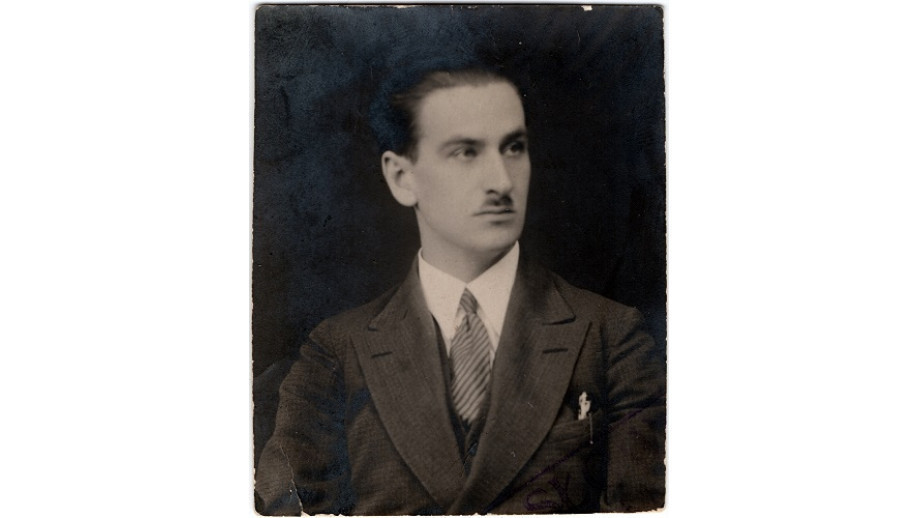News

On Thursday 17th November, the Polish Institute in Budapest hosted a meeting on the life and works of Józef Mackiewicz, entitled 'Only the truth is interesting'. It was organised with the support of the Polish Embassy in Hungary and the Polish Book Institute.
"Hungarians must realise that Ukraine and Belarus are not Russia; these nations have their own histories and tragedies. The knowledge that Hungarians now need is encoded in the novels of Józef Mackiewicz," said Lajos Palfalvi, historian, literary critic, and translator of Mackiewicz's books into Hungarian, in an interview with Polish Press Agency (PAP).
"To me, Mackiewicz is the most intriguing witness to the history of the 20th century. He is undoubtedly one of the most eminent émigré writers," the Polish ambassador in Budapest, Sebastian Kęciek, said before the meeting.
"This is the first such serious event where, outside of a narrow circle of historians and writers, Mackiewicz is discussed in Hungary, which I am very pleased about," emphasised Palfalvi, who had also translated texts by Czesław Miłosz, Witold Gombrowicz, Olga Tokarczuk, Krzysztof Varga, and Stanisław Vincenz, to name a few.
So far, eight of Mackiewicz's books have been translated into Hungarian. "The largest number of translations of the writer's works have been published in Hungary. In second place, as far as I know, is Germany with six titles," Joanna Urbańska, director of the Polish Institute in Budapest, told PAP. "We also hope that a Hungarian monograph dedicated to Mackiewicz will soon be compiled," she added.
Alongside Palfalvi, the meeting was attended by Professor Włodzimierz Bolecki, literary historian and eminent expert on the life and works of Józef Mackiewicz, and Aron Mathe, historian and sociologist, vice-chairman of the Hungarian Committee of National Remembrance.
Bolecki emphasised that the process of becoming acquainted with the works of Józef Mackiewicz in Poland was long and slow. "There was a period in the 1990s when, despite the fact that his books were published, the media had virtually no interest in him. For in Mackiewicz's work, many older readers who grew up in a communist state found very unpleasant things about themselves. They didn't and still don't like Mackiewicz because the writer rejected the whole system and the world they lived in," he added.
This is precisely why Bolecki believes that Mackiewicz is a writer of the future who needs to be discovered by young readers who recognise in his books not their own world, but the truth about the world of the past. "I don't think Mackiewicz is a hermetic writer. I think he will have more and more readers," the historian said.
"British historian Norman Davies has said that there is an Allied history of the Second World War according to which the Allies defeated the Third Reich, i.e. good defeated evil. Mackiewicz expresses the opposite view," the writer's biographer noted. "According to him, the Second World War ended in the greatest catastrophe in history for small nations and states, especially since the Soviet Union was among the victors. Jozef Mackiewicz is a writer who tells of great defeats that replaced the great hopes and aspirations of the peoples of Eastern Europe," the historian added.
Józef Mackiewicz (1902-1985) was a journalist and writer. His elder brother, Stanisław Cat-Mackiewicz, was editor-in-chief of the conservative newspaper ‘Słowo’ in Vilnius before the Second World War, and Prime Minister of the Polish Government in Exile from 1954 to 1955. Józef Mackiewicz participated in the Polish-Bolshevik war while still a secondary school student. In the interwar period, he wrote for the Vilnius 'Słowo' daily. In the late 1930s, he protested against the destruction of Orthodox churches in eastern Poland.
In May 1943, after the discovery in Katyn of the graves of Polish officers murdered by the Soviets, at the invitation of Germany and with the consent of the Polish underground authorities, Mackiewicz went to Katyn, accompanied by several other Polish writers, as an observer of the exhumation of the bodies. After the war, he lived in exile in Munich with his wife Barbara Toporska, and was in conflict with most of the Polish emigrants. He was known as a staunch anti-communist.
"Mackiewicz described himself this way: profession - writer, nationality - anti-communist, country of origin - Eastern Europe," Bolecki said during the meeting. "He stressed that he was closer to the region than to any particular nation. Mackiewicz was against all nationalism," he added.
The Sejm of the Republic of Poland, in recognition of the greatness of Józef Mackiewicz's oeuvre, including his tenacious support for the ideas of Polish independence, freedom and friendly co-existence among the nations of Central and Eastern Europe, and his steadfast resistance against communism, has designated 2022 (120 years after the writer's birth) as the Year of Józef Mackiewicz.
source: Polish Press Agency (PAP), Marcin Furdyna